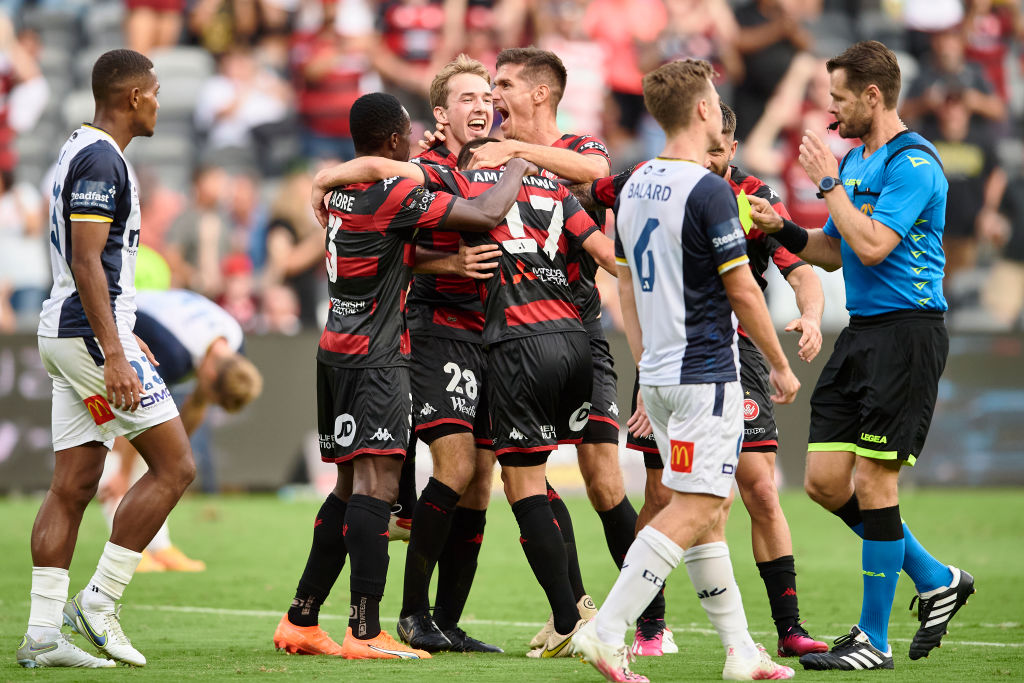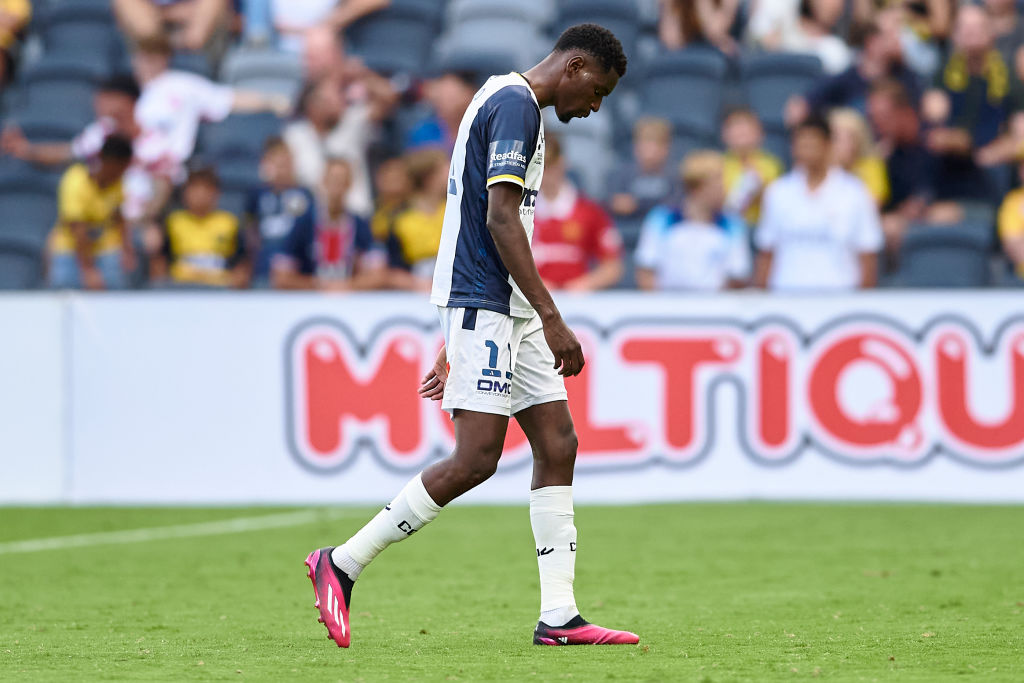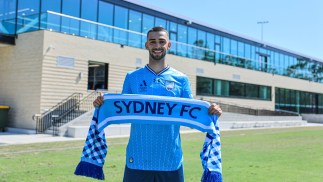A decade ago the Wanderers went on a roll that led to a trophy; history could be repeating, writes Tom Smithies
In a week of nostalgia about the triumph of their first season, Western Sydney are starting to look like they are ready to write a new chapter of success. The parallels with 10 years ago are growing by the minute.
A decade after they went top of the A-League on their way to the Premier’s Plate in 2013, the Wanderers served notice that they may well be the real deal again. Two really well-crafted goals against the Mariners took Marko Rudan’s side second, and the obvious headlines centre on how they solidified that position from one of their title rivals.
And yet it’s tempting to see a broader narrative in Western Sydney’s season, shades of history repeating itself. There’s some way to go yet, but 10 years on from the drama and delight of the Wanderers’ first season, this campaign is starting to feel uncannily familiar. If Melbourne City remain favourites for the Premiers Plate, Western Sydney will surely fight them for the championship.
One of the most striking aspects to Tony Popovic’s team a decade ago was the purpose and belief that infected their football as the season went on. By the end the self-belief was iron, borne of resolute defence married to the flair of attackers like Shinji Ono and Youssef Hersi. Most importantly, that belief grew tangibly as the season went on.
Come 2022-23 and the Wanderers pot is more than simmering, not quite at a full rolling boil but getting closer and closer. This was a statement win, in the context of quite simply bullying – largely figuratively – a title rival but also in the context of how the season unfolds from here.
The self-belief, in other words, is starting to course through a team with some very, very fine footballers. At the start of the season, the prospect of Romain Amalfitano and Yeni Ngbakoto playing with as much instinctive understanding as their animated conversations was beguiling enough, even before Brandon Borrello rolled up his sleeves to embark on his finest season in the A-League.
But add to that now the elegant steel of Morgan Schneiderlin and the intense football IQ of the newest signing, Amor Layouni – running at pace but devastatingly effective with every stride – and this is a team with a formidable and interchangeable attack. Ten goals in three games speaks to the quality in every pass and move.
Whether it’s Schneiderlin or Layouni who has been the ultimate catalyst is immaterial; the end result has been the ability for Amalfitano to play further forward than he has been until recently, with the vision and understanding that once prompted Newcastle United to take him to the Premier League.

The first goal showed all of the above, draped in the football intelligence studded through this team. As the ball was worked forwards, you could see players moving in anticipation of two or three passes ahead; Schneiderlin fed Amalfitano in the centre, the ball was carried forward and Layouni was released on the right of the box. The cross was cute, measured and if Borello got a lucky rebound in converting it was well deserved.
Layouni’s intelligence was central to the second goal too, driving up the right but also biding his time until reinforcements arrived in the shape of Calem Nieuwenhof; he too took a moment before rolling the ball into the feet of Amalfitano for a simple conversion.
The timing was perfect, just minutes after Western Sydney had gone down to 10 men through Marcelo’s sending off. The Mariners’ frustration grew visibly and Beni Nkolo swung an arm of earn the game’s second red card.
To the Mariners’ credit they didn’t seek to defend a moment of stupidity, the French winger sucked in by some Western Sydney physicality. Three red cards in two games – plus one for the coach – suggest the pressure of a title race for a very young team might be starting to tell.

Part of it is of course the injuries, international call-ups and suspension that have bitten hard into a team full of youthful promise but not over-endowed with experience. But even allowing for those depletions this was a curiously flat display from a team built on forward thrusts and energy.
In part they ran into the brick wall of a well-structured and intense Wanderers line-up; Jason Cummings was left isolated by the tweak to a five-man midfield, and while Jacob Farrell’s switch to centreback from fullback has been effected with style, it does take Farrell’s winger-like ability to give his side width out of the tacking equation.
Not that this loss need be terminal; the Mariners have bounced back several times this season and they have several winnable games coming up before Melbourne City, the out-in-front leaders (for now), come to Gosford on April 15. That should be a very big night.
As could be the Friday two rounds later, when the Mariners have to travel to Adelaide – and Melbourne City host the Wanderers, all of the current top four in what could be a shoot-out.
A decade ago Western Sydney won the Premier’s Plate away from home in the last round… their fans could be forgiven for wondering how far the parallels with this campaign will stretch.





